Please fill out the following information, and RRFC Admissions will contact you to discuss our program offerings:
Issue #171
by L. Swift and Jeff McQ
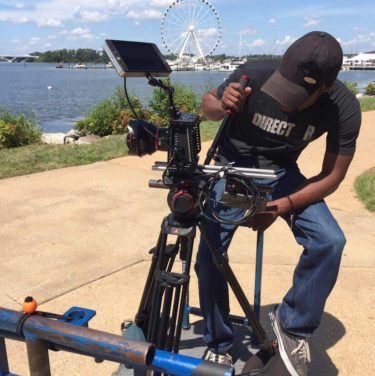 A few months ago, Katz Carter (Los Angeles, CA) tuned into “Connected,” RRFC’s weekly jobs webcast with DJ IZ, and heard about a unique scholarship opportunity to attend The Film Connection. On an impulse, he decided to go for it.
“Applying for the contest was a last-minute decision, because I was really busy and focused on the career path,” he says. “Then I thought and I was like, ‘Wait a minute, it would be a lot easier and I can go a lot further with this program from what IZ is saying.’ So I was like, ‘You know what, I’m actually going to apply for it.’”
The impulse paid off. Katz was one of two Connected Scholarship winners, and is now enrolled as an apprentice under Film Connection mentors Daniel Lir and Bayou Bennett of Dream Team Directors in Los Angeles. Now, he’s now honing his craft under their expert mentorship and has his eye on directing his first feature film!
A few months ago, Katz Carter (Los Angeles, CA) tuned into “Connected,” RRFC’s weekly jobs webcast with DJ IZ, and heard about a unique scholarship opportunity to attend The Film Connection. On an impulse, he decided to go for it.
“Applying for the contest was a last-minute decision, because I was really busy and focused on the career path,” he says. “Then I thought and I was like, ‘Wait a minute, it would be a lot easier and I can go a lot further with this program from what IZ is saying.’ So I was like, ‘You know what, I’m actually going to apply for it.’”
The impulse paid off. Katz was one of two Connected Scholarship winners, and is now enrolled as an apprentice under Film Connection mentors Daniel Lir and Bayou Bennett of Dream Team Directors in Los Angeles. Now, he’s now honing his craft under their expert mentorship and has his eye on directing his first feature film!
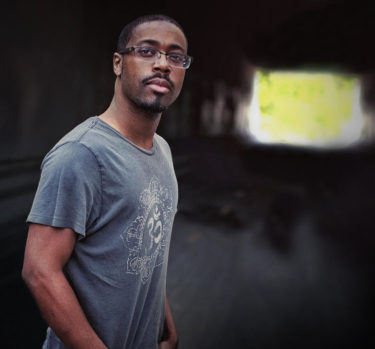 “This program is actually helping me to develop the writing and the knowledge of actually producing and creating my first feature film, which is going to be a milestone in my life,” he says. “So far, this program is really helping me to expedite that process…I’ve already talked to [my mentors] about it so we can coincide the regular assignments that I have and use them towards the development of my feature film.”
Katz started pursuing a film career several years ago, and even attended a couple of different film schools, but he admits the traditional education route wasn’t for him. Since leaving school, he’d been attempting to break in on his own but felt he lacked the focus that comes from having a mentor. “Working on my own, it’s kind of tough when no one is helping me, guiding me, or telling me, ‘You should do this. This is a lot easier,’” he says. “[As an artist] I can go so far out of the box that it’s not going to reach anybody. So I probably should shave some of that down or harness it a little bit more, kind of bring it back to earth… I want to polish my skills, and I cannot do that on my own.”
“This program is actually helping me to develop the writing and the knowledge of actually producing and creating my first feature film, which is going to be a milestone in my life,” he says. “So far, this program is really helping me to expedite that process…I’ve already talked to [my mentors] about it so we can coincide the regular assignments that I have and use them towards the development of my feature film.”
Katz started pursuing a film career several years ago, and even attended a couple of different film schools, but he admits the traditional education route wasn’t for him. Since leaving school, he’d been attempting to break in on his own but felt he lacked the focus that comes from having a mentor. “Working on my own, it’s kind of tough when no one is helping me, guiding me, or telling me, ‘You should do this. This is a lot easier,’” he says. “[As an artist] I can go so far out of the box that it’s not going to reach anybody. So I probably should shave some of that down or harness it a little bit more, kind of bring it back to earth… I want to polish my skills, and I cannot do that on my own.”
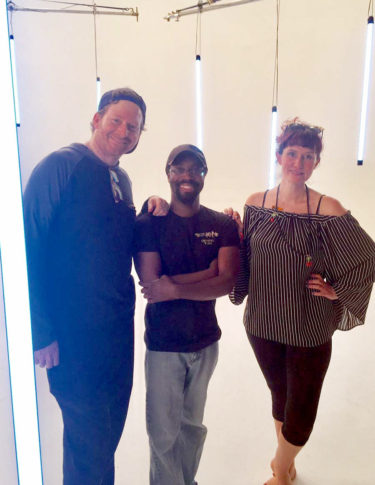
Daniel Lir, Katz Carter and Bayou Bennett
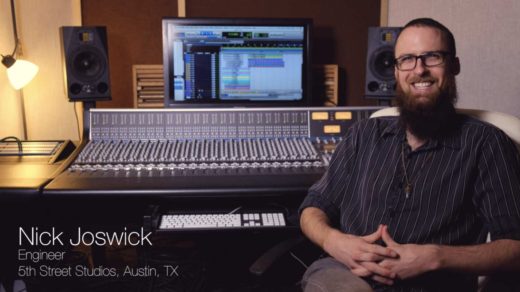 RRFC: So what have you been working on lately in the studio?
Nick Joswick: Well, I’m working on a record right now with a local hip hop band called Magna Carda. They’re really cool in the fact that they have a female MC who fronts the band, and then they actually have a full band behind them. So it’s kind of full band hip-hop, which is the perfect fusion of kind of what my specialties are, as working with bands and then knowing the hip hop side of things. We did one record last year, and then we’re in the midst of working on a record right now with them…I just released a record a couple months ago with this band Toma. Actually, the lead singer for White Denim was producing that record, so he and I kind of tag teamed that, and we got one of our really good friends, an incredibly talented engineer, Jim Vollentine, to mix that record. They just released that not too long ago, and that’s something I’m really, really proud of. It came out really cool…We’re kind of working on their next release as well.
RRFC: We hear you’ve been on the road doing some tour management?
Nick: Yeah…I’ve taken on tour managing. So I’ve been on the road quite a bit over the past year with the band Black Pistol Fire…a rock and roll duo, kind of garage/blues rock…duo out of Canada originally, but they now reside in Austin. They actually have recorded a lot at 5th Street Studios, and that’s how I came to know them and become friends with them. They finally got to a point where just the two of them were doing so many shows across the United States and all this travelling that it was a little too much to handle. So they graciously took me on, and I’ve been helping them manage their tours and do all the stuff that they don’t want to do so that they can focus on playing music… We just actually got back from doing Stagecoach, which was not our typical scene. The Stagecoach Festival is on the same festival grounds where they hold Coachella…So they asked us to play this year and we went out and did it even though a garage rock band didn’t necessarily fit in with the country vibe of Willie Nelson and Jerry Lee Lewis and Maren Morris and a bunch of the big name country acts that were there. But regardless, it was a lot of fun.
RRFC: So what have you been working on lately in the studio?
Nick Joswick: Well, I’m working on a record right now with a local hip hop band called Magna Carda. They’re really cool in the fact that they have a female MC who fronts the band, and then they actually have a full band behind them. So it’s kind of full band hip-hop, which is the perfect fusion of kind of what my specialties are, as working with bands and then knowing the hip hop side of things. We did one record last year, and then we’re in the midst of working on a record right now with them…I just released a record a couple months ago with this band Toma. Actually, the lead singer for White Denim was producing that record, so he and I kind of tag teamed that, and we got one of our really good friends, an incredibly talented engineer, Jim Vollentine, to mix that record. They just released that not too long ago, and that’s something I’m really, really proud of. It came out really cool…We’re kind of working on their next release as well.
RRFC: We hear you’ve been on the road doing some tour management?
Nick: Yeah…I’ve taken on tour managing. So I’ve been on the road quite a bit over the past year with the band Black Pistol Fire…a rock and roll duo, kind of garage/blues rock…duo out of Canada originally, but they now reside in Austin. They actually have recorded a lot at 5th Street Studios, and that’s how I came to know them and become friends with them. They finally got to a point where just the two of them were doing so many shows across the United States and all this travelling that it was a little too much to handle. So they graciously took me on, and I’ve been helping them manage their tours and do all the stuff that they don’t want to do so that they can focus on playing music… We just actually got back from doing Stagecoach, which was not our typical scene. The Stagecoach Festival is on the same festival grounds where they hold Coachella…So they asked us to play this year and we went out and did it even though a garage rock band didn’t necessarily fit in with the country vibe of Willie Nelson and Jerry Lee Lewis and Maren Morris and a bunch of the big name country acts that were there. But regardless, it was a lot of fun.
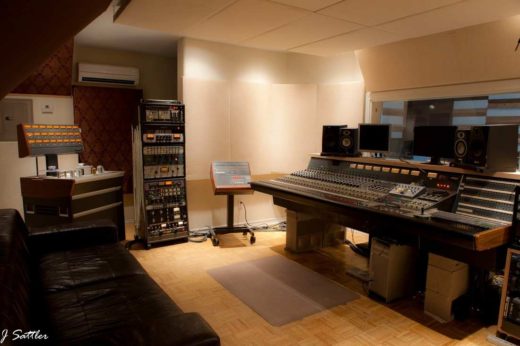
Control room in 5th Street Studios
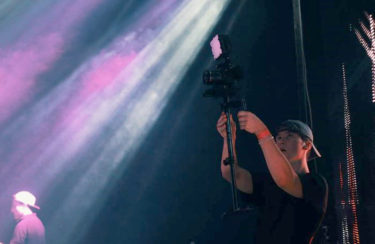 Film Connection student Max Jagodzinski (Minneapolis, MN) who apprentices with Travis Johansen at Provid Films has been going non-stop: I have been super busy lately with projects all over the country! I was in San Diego filming for a sorority in San Diego with my company CampusLens. Then, I was in Los Angeles filming an event hosted by Skybound Trampolines. Today I just got back from Los Angeles (again) filming with my buddy for a swimsuit company…I love all the diverse fields I am working in. Music festivals, greek life, professional athletes, and unique corporate companies. I’m really glad I have learned some of the business side of videos from my mentor, Travis. One thing I’ve learned through experience is you just need to put yourself out there. Build your network and leave your customer with more then expected. Referrals are a huge part in getting more business. Overall, the best way to start is to dive in head first and really build your connections!” Check out one of Max’s videos below!
Film Connection student Max Jagodzinski (Minneapolis, MN) who apprentices with Travis Johansen at Provid Films has been going non-stop: I have been super busy lately with projects all over the country! I was in San Diego filming for a sorority in San Diego with my company CampusLens. Then, I was in Los Angeles filming an event hosted by Skybound Trampolines. Today I just got back from Los Angeles (again) filming with my buddy for a swimsuit company…I love all the diverse fields I am working in. Music festivals, greek life, professional athletes, and unique corporate companies. I’m really glad I have learned some of the business side of videos from my mentor, Travis. One thing I’ve learned through experience is you just need to put yourself out there. Build your network and leave your customer with more then expected. Referrals are a huge part in getting more business. Overall, the best way to start is to dive in head first and really build your connections!” Check out one of Max’s videos below!
 During her time with mentor Joey Paranoia, Recording Connection student Emily Stamer (Orlando, FL) is using the insight and skills she’s growing to make her dreams reality. Speaking of a recent show, Emily says, “It was the best feeling in the world. My first 2 sets I ever had were a week before that and there were many tech problems so this was the first time everything went smoothly and I killed my set. I had people coming up to me afterwards, taking photos and telling me how much they loved my music. It was the most magical feeling I’ve ever felt. My LUCY project has been going great I have 2 mixes up on my soundcloud @LucyWub. “i like wubs” has over 5k views already for the month its been out!…After meeting with my mentor Joey Paranoia I knew this was the school for me. He has traveled the world and has played with so many djs/producers. Also the fact he’s a certified Ableton trainer I was like sign me up! He is the best teacher I have ever had. In January I was just a girl with a dream.. and he made it a reality for me.”
During her time with mentor Joey Paranoia, Recording Connection student Emily Stamer (Orlando, FL) is using the insight and skills she’s growing to make her dreams reality. Speaking of a recent show, Emily says, “It was the best feeling in the world. My first 2 sets I ever had were a week before that and there were many tech problems so this was the first time everything went smoothly and I killed my set. I had people coming up to me afterwards, taking photos and telling me how much they loved my music. It was the most magical feeling I’ve ever felt. My LUCY project has been going great I have 2 mixes up on my soundcloud @LucyWub. “i like wubs” has over 5k views already for the month its been out!…After meeting with my mentor Joey Paranoia I knew this was the school for me. He has traveled the world and has played with so many djs/producers. Also the fact he’s a certified Ableton trainer I was like sign me up! He is the best teacher I have ever had. In January I was just a girl with a dream.. and he made it a reality for me.”

RRFC is education upgraded for the 21st century.
Get the latest career advice, insider production tips, and more!
Please fill out the following information, and RRFC Admissions will contact you to discuss our program offerings:
Stay in the Loop: Subscribe for RRFC news & updates!
© 2025 Recording Radio Film Connection & CASA Schools. All Rights Reserved.


